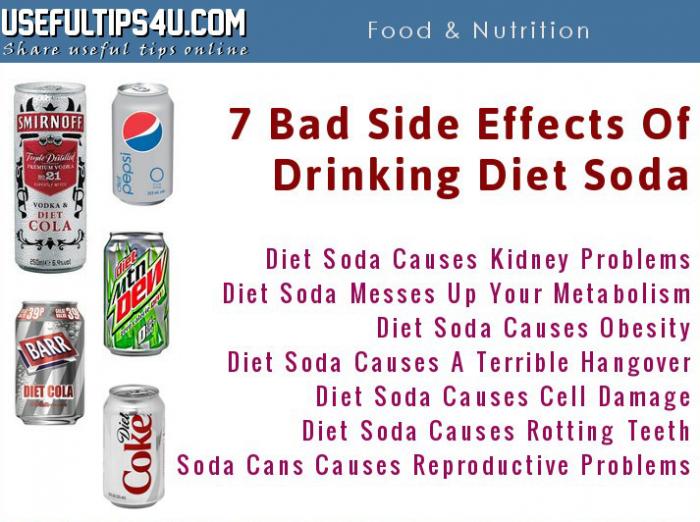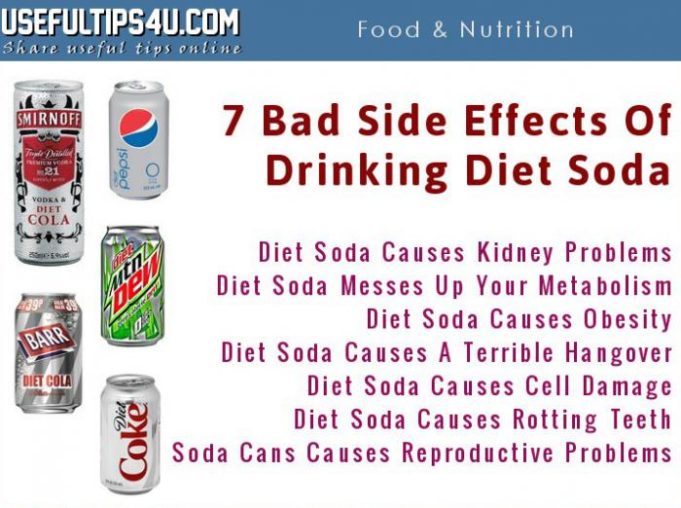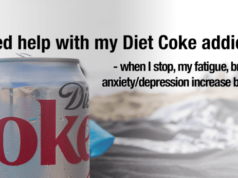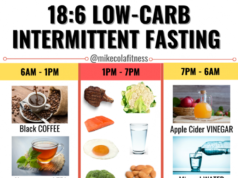Why is diet soda worse, you ask? While it might seem like a healthier choice than regular soda, there’s a growing body of research suggesting that diet soda might not be as benign as we once thought. Artificial sweeteners, the key ingredient in diet soda, have come under scrutiny for their potential impact on our gut health, blood sugar regulation, and even our cravings for sugary foods.
This article delves into the complex relationship between diet soda and our bodies, exploring the potential downsides of artificial sweeteners and their long-term effects. We’ll also examine the impact of diet soda on blood sugar, insulin levels, and its potential role in weight gain. By understanding the potential risks, we can make informed decisions about our beverage choices and prioritize a healthier lifestyle.
The Artificial Sweeteners Debate
Diet soda has become a popular choice for those seeking to reduce their sugar intake. However, the use of artificial sweeteners in these beverages has sparked a debate about their potential health risks. While they may help in curbing sugar consumption, emerging research suggests that these artificial sweeteners might have unintended consequences for our bodies.
Artificial Sweeteners and Their Potential Health Risks
Artificial sweeteners are synthetic compounds designed to mimic the sweetness of sugar without providing calories. Some of the most common artificial sweeteners found in diet soda include aspartame, sucralose, and saccharin. While they have been approved for human consumption by regulatory bodies, concerns have been raised about their potential long-term health effects.
- Aspartame is a widely used artificial sweetener that has been linked to various health concerns, including headaches, mood changes, and even cancer in some studies. However, the scientific evidence on aspartame’s safety remains inconclusive, and more research is needed to understand its long-term effects.
- Sucralose is another popular artificial sweetener that has been associated with potential gut microbiome disruption. Research suggests that sucralose might alter the composition of gut bacteria, which could contribute to metabolic issues such as weight gain and insulin resistance.
- Saccharin is the oldest artificial sweetener, and it has been linked to bladder cancer in some animal studies. However, human studies have not shown a clear link between saccharin and cancer, and its safety remains a subject of ongoing debate.
Artificial Sweeteners and Gut Microbiome
The gut microbiome, the trillions of bacteria residing in our digestive system, plays a crucial role in overall health. Emerging research suggests that artificial sweeteners might disrupt the delicate balance of gut bacteria, potentially leading to adverse health outcomes.
Artificial sweeteners can alter the composition and function of gut bacteria, potentially contributing to metabolic issues such as weight gain, insulin resistance, and inflammation.
- Studies have shown that consuming artificial sweeteners can increase the abundance of certain types of bacteria associated with metabolic diseases, while reducing the abundance of beneficial bacteria.
- These changes in gut bacteria composition can lead to increased inflammation, impaired glucose metabolism, and altered appetite regulation, potentially contributing to weight gain and other metabolic disorders.
Long-Term Effects of Artificial Sweeteners vs. Sugar
The long-term effects of consuming artificial sweeteners compared to sugar are still being investigated. While artificial sweeteners provide no calories, they may still impact our bodies in ways that are not fully understood.
- Some studies suggest that artificial sweeteners may trigger cravings for sugary foods, potentially leading to increased sugar consumption and its associated health risks.
- Others have found that artificial sweeteners may interfere with the body’s natural regulation of appetite and satiety, contributing to overeating and weight gain.
- While sugar consumption is linked to various health issues like obesity, diabetes, and heart disease, the long-term effects of artificial sweeteners on these conditions are still being explored.
Impact on Blood Sugar and Insulin Levels
Diet soda, with its artificial sweeteners, presents a unique challenge to our understanding of how it affects blood sugar and insulin levels. While it doesn’t contain sugar, its impact on these crucial metabolic processes is not as straightforward as it might seem.
The artificial sweeteners in diet soda are designed to provide sweetness without the calories or the sugar spike that comes with regular soda. However, research suggests that these sweeteners might not be as innocuous as previously thought.
Potential Disruption of Sugar Regulation
The consumption of artificial sweeteners can potentially disrupt the body’s natural sugar regulation mechanisms. This disruption could occur through various pathways:
- Changes in gut microbiota: Artificial sweeteners may alter the composition and function of gut bacteria, which play a crucial role in regulating blood sugar levels.
- Increased insulin resistance: Some studies suggest that artificial sweeteners may increase insulin resistance, making it harder for the body to use glucose effectively. This could potentially contribute to an increased risk of type 2 diabetes.
- Altered glucose metabolism: Artificial sweeteners might trigger a hormonal response that mimics the effects of sugar, leading to changes in glucose metabolism and potentially increasing the risk of metabolic disorders.
While the exact mechanisms are still under investigation, these potential effects raise concerns about the long-term health implications of consuming artificial sweeteners.
Potential for Cravings and Weight Gain
While diet soda is marketed as a calorie-free alternative to regular soda, there is growing evidence that it may paradoxically contribute to cravings for sugary foods and drinks, potentially leading to weight gain. This seemingly counterintuitive effect stems from the way artificial sweeteners interact with our bodies and brains.
Artificial Sweeteners and the Brain’s Reward System
Artificial sweeteners are designed to mimic the sweetness of sugar without providing the same caloric content. However, they may trigger a complex interplay with the brain’s reward system, potentially leading to cravings for real sugar. When we consume something sweet, our brains release dopamine, a neurotransmitter associated with pleasure and reward. This response helps regulate our appetite and encourages us to seek out foods that provide energy. Artificial sweeteners, despite their lack of calories, can still activate the same reward pathways in the brain, leading to a similar dopamine release.
This stimulation of the reward system without the corresponding energy intake may create a disconnect, leaving us feeling unsatisfied and craving more sugary foods to fully satisfy our brains’ reward pathways.
This disconnect can lead to a vicious cycle: the artificial sweetener triggers a dopamine release, but the lack of calories leaves us wanting more. This craving for sugar can then lead to overconsumption of sugary foods and drinks, potentially contributing to weight gain.
Studies Linking Diet Soda Consumption and Weight Gain
Numerous studies have investigated the potential link between diet soda consumption and weight gain. While the results are not always consistent, some research suggests a correlation between diet soda consumption and increased body mass index (BMI), waist circumference, and risk of obesity.
For instance, a meta-analysis of 12 studies involving over 600,000 participants found that those who consumed diet soda regularly had a higher risk of developing metabolic syndrome, a cluster of conditions that increase the risk of heart disease, stroke, and type 2 diabetes.
Other studies have observed that diet soda consumption may be associated with changes in gut bacteria, which play a crucial role in regulating metabolism and weight management. These changes in gut microbiome composition could potentially contribute to increased appetite and weight gain.
Hydration and Other Considerations
While diet soda may seem like a healthier alternative to regular soda, it’s important to consider its impact on hydration and other aspects of health. Diet soda, unlike water, doesn’t provide any hydration benefits and may even have negative consequences.
Hydration Properties of Diet Soda
Diet soda is primarily composed of carbonated water, artificial sweeteners, and flavorings. Unlike water, it doesn’t contain electrolytes, which are essential for maintaining proper hydration. Electrolytes, such as sodium, potassium, and magnesium, help regulate fluid balance in the body. Water, on the other hand, is a natural source of electrolytes and is the most effective way to stay hydrated.
Potential Negative Effects of Carbonated Drinks
Consuming large quantities of carbonated drinks, regardless of sugar content, can lead to several potential health issues. The carbonation in these drinks can cause bloating and gas, as the bubbles can expand in the stomach and intestines.
Impact of Diet Soda Consumption on Dental Health
Diet soda, despite being sugar-free, can still contribute to tooth erosion. The acidic nature of these drinks can wear down tooth enamel, increasing the risk of cavities and other dental problems. This is because the artificial sweeteners in diet soda can also lower the pH in the mouth, making it more acidic.
Alternatives to Diet Soda

While diet soda might seem like a tempting low-calorie option, it’s essential to explore healthier alternatives that provide hydration and nourishment without the potential downsides of artificial sweeteners. Switching to these options can significantly benefit your overall health and well-being.
Comparing Diet Soda with Healthier Alternatives
Understanding the differences between diet soda and healthier alternatives can guide you toward making informed choices for your daily hydration needs. Here’s a comparison table that highlights the key aspects of each beverage:
| Beverage | Calories | Sugar | Artificial Sweeteners | Other Considerations |
|---|---|---|---|---|
| Diet Soda | 0 | 0 | Yes | Potential for cravings, impact on gut health, and dehydration |
| Water | 0 | 0 | No | Essential for hydration, supports bodily functions, and promotes satiety |
| Unsweetened Tea | 0-5 | 0 | No | Rich in antioxidants, can be enjoyed hot or cold, and offers a variety of flavors |
| Sparkling Water | 0 | 0 | No | Provides a refreshing and bubbly alternative to soda, can be infused with flavors |
Creating Flavorful and Low-Calorie Beverages
Experimenting with flavors can make staying hydrated enjoyable and help you transition away from sugary drinks. Here are some ideas for homemade beverages:
Flavored Water Recipes
- Citrus Infusion: Slice oranges, lemons, limes, or grapefruits and add them to a pitcher of water. Let it sit in the refrigerator for at least 30 minutes for the flavors to infuse.
- Berry Burst: Combine your favorite berries, such as strawberries, raspberries, or blueberries, with water and let them infuse in the refrigerator.
- Cucumber Mint: Add cucumber slices and fresh mint leaves to water for a refreshing and hydrating beverage.
Other Low-Calorie Beverage Ideas
- Infused Iced Tea: Steep black or green tea and add fresh fruit slices or herbs for a flavorful and refreshing drink.
- Homemade Lemonade: Use a natural sweetener like honey or stevia to create a healthier version of lemonade.
- Fruit Smoothies: Blend fruits with water or unsweetened almond milk for a nutritious and satisfying beverage.
Tips for Reducing Sugar Intake and Adopting a Healthier Beverage Pattern, Why is diet soda worse
Making gradual changes to your beverage choices can significantly impact your overall sugar intake. Here are some helpful tips:
- Start Small: Begin by replacing one or two sodas a day with a healthier alternative.
- Read Labels: Pay attention to the sugar content of juices, sports drinks, and other beverages.
- Stay Hydrated: Drink water throughout the day, especially before meals, to reduce cravings for sugary drinks.
- Explore Flavors: Experiment with different fruits, herbs, and spices to add flavor to water and tea.
- Be Mindful: Consider your beverage choices and their impact on your health.
Outcome Summary
While diet soda might seem like a guilt-free alternative to regular soda, the evidence suggests that it’s not as simple as it appears. The potential health risks associated with artificial sweeteners, including their impact on gut health, blood sugar regulation, and cravings, raise concerns about their long-term effects. Ultimately, choosing healthier alternatives like water, unsweetened tea, or sparkling water can help us reduce our sugar intake and promote overall well-being. So, the next time you reach for a beverage, consider the potential consequences and opt for a choice that supports your health goals.
Questions and Answers: Why Is Diet Soda Worse
Is diet soda actually bad for you?
While more research is needed, emerging evidence suggests that diet soda may have potential negative effects on health, particularly due to the artificial sweeteners it contains.
Does diet soda affect my gut health?
Some studies suggest that artificial sweeteners may disrupt the balance of gut bacteria, potentially contributing to metabolic issues.
Can diet soda cause weight gain?
Research on the link between diet soda and weight gain is mixed, but some studies suggest that it might paradoxically increase cravings for sugary foods.
Is diet soda better than regular soda?
While diet soda contains fewer calories than regular soda, its potential health risks associated with artificial sweeteners make it a less desirable choice overall.
While diet soda might seem like a healthier alternative, it’s often associated with negative health effects like cravings and metabolic issues. The same goes for the dangerous side effects that can come with taking diet pills, which are often touted as quick fixes for weight loss.
It’s important to remember that diet pills dangerous and that focusing on a balanced diet and regular exercise is a much safer and sustainable approach to weight management. Ultimately, choosing healthy options like water and natural foods over diet soda and potentially harmful diet pills is the best way to achieve lasting health and well-being.
While diet soda might seem like a healthier option, it can actually be detrimental to your gut health. The artificial sweeteners can disrupt your gut bacteria and even lead to cravings for sugary foods. Before embarking on a diet, it’s crucial to cleanse your system with a detox program, like the one offered by before diet detox.
This can help reset your gut health and prepare your body for a successful weight loss journey. Ultimately, prioritizing natural, whole foods over artificial sweeteners is essential for achieving sustainable health and well-being.
While diet soda might seem like a harmless alternative, studies show it can actually be worse for your health than regular soda. It’s full of artificial sweeteners that can mess with your gut bacteria and even lead to cravings for sugary foods.
If you’re looking to make healthier choices, consider ditching diet soda and focusing on real food. To learn more about making healthy changes, check out this guide on how to start diet for beginners. You’ll find tips on making sustainable changes to your diet and lifestyle.
And remember, ditching diet soda is just one small step towards a healthier you.
























